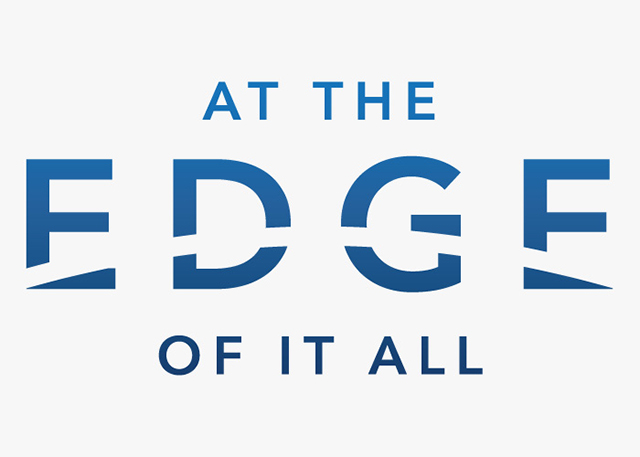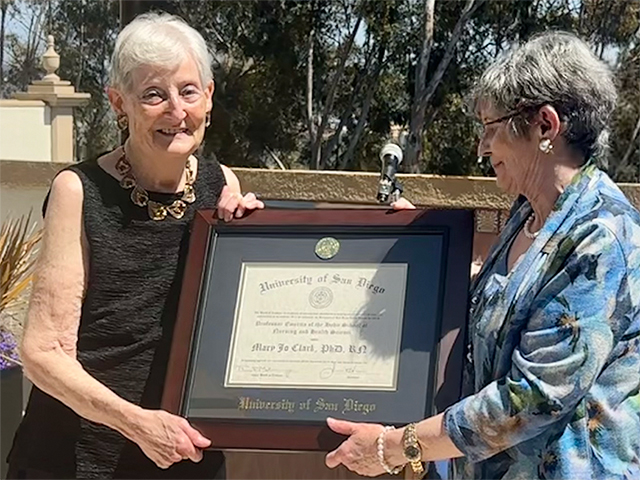Derek Abbey: Helping Veteran Students Succeed

Derek Abbey understands the importance of being helpful. It’s an unwavering trait he believes, honestly and passionately. It significantly aided him as he served 23 years in the U.S. Marine Corps. It’s a critical component for his inspired volunteer work with the BentProp Project. In his newest role as the University of San Diego’s Veteran Student Services Coordinator, it’s an essential asset.
Military service gave the now 42-year-old retired major an “eventful career” through aviation, fighter squadrons and special operations experiences. While he was stationed mainly on the west coast, he did deployments to Iraq, Afghanistan, Japan, Korea and Australia. His work since 2006 for the BentProp Project, which consists of a team of volunteers, trained specialists, and professionals dedicated to locating and assisting with identifying American prisoners of war (POW) and missing in action (MIA) from World War II and other conflicts around the world, is humbling.
At USD, Abbey’s presence as a supportive and informative ally for military veterans pursuing an undergraduate, graduate or law degree, is all about dependability in what can be an unsettling environment.
Supporting Student Veterans
“This population, when it is about higher education, you don’t have the answers. (USD’s Veteran Center) is a place you can come to get an honest answer, honest advice, mentorship or whatever else with the understanding of a veteran’s experience,” Abbey said. “… Oftentimes, these students have been extraordinarily successful and had amazing, indescribable responsibility in the military. But outside, they come here and it’s a different system that isn’t always the easiest to understand.”
The center, located in Hahn University Center Room 225, houses the offices of Abbey and Veterans Compliance Coordinator Marvin Veneracion, a meeting/study space, a living room lounge area and serves as a host to USD’s resources for veterans.
“I want to help them find the avenues to success as they had in the military … I want those who utilize the Veteran Center to know that they can find the answers, assistance and guidance to solve some of those problems and become successful as college students,” Abbey said. “I have no doubt they'll be successful and figure it out, but we want to ensure that they are as successful as they can be academically and that it transitions to connecting them to that next career or professional opportunity. Make sure that they align with who they want to be as a person. Those connections can be made here and make the process easier.”
Education Background
Abbey’s late August 2015 arrival to replace Laura Paquian came after serving as a military liaison officer at San Diego State University since May 2014. But Abbey was quite familiar with USD. In fact, being helpful was a characteristic that sold him on attending USD as a military veteran student himself.
“It’s a place of beauty, but what I was really drawn to were the people and interactions I had when I was looking for a graduate degree,” Abbey said. “I was really impressed. If I had a question, people were very willing to answer it or, if they couldn’t, they could introduce me to four or five others who could help me. They made the process very easy. Once I got into the institution, I learned even more about it. I earned an elite education, interacted with some amazing people and became a proud graduate of a program that enabled me to use a lot of the skill sets I learned.”
Abbey’s 2011 MA in higher education leadership via the School of Leadership and Education Sciences (SOLES) as well as his current status as a second-year student in SOLES’ PhD Leadership Studies program demonstrate his keen knowledge about today’s military benefits and understanding higher education challenges and pitfalls for veterans.
Honest Approach
The university has 582 students enrolled in academic programs this fall, counting veterans, active duty and military family members who are utilizing their benefits.
Abbey is still settling into his new role, but he’s already making strides to increase visibility for student veterans through social media platforms, attending conferences, supporting USD’s Student Veteran Organization, partnering with other colleges for information sessions to help all area veterans, creating an alumni veterans network and more. He refers to a three-phase approach — access, success and projection — when talking to prospective students interested in attending college, ways to increase awareness and campuswide support of veteran students and preparing them for post-graduation opportunities.
Abbey, a first generation college student who attended Oregon State for his undergraduate education, listens to each student veteran inquiring about college and provides them with an honest approach and information that applies to their individual’s experience — even if the best recommendation is to attend community college or another institution rather than USD.
“I continue to see this population having trouble moving through the higher education process,” he said. “You look at it today and there are predatory institutions that try to take advantage of these groups. They know they are first generation college students, they know they feel behind and are in a hurry to start the next portion of their lives when they exit the military so they make promises to them to get ahold of their benefits and for the institution.”
Community Building
At USD, long a military friendly institution that has, since 1982 has been a home base for the San Diego Naval Reserve Officers Training Corps (NROTC), is a Yellow Ribbon institution. Adding the physical Veteran Center space on campus was a major addition last fall.
“The center is here, it’s centrally located on campus, visible and helps us send a message to military-connected students that they’re a part of this community. You’re welcome here,” Abbey said.
Abbey also extended an invitation for non-military members of the USD community to visit this public space.
“We invite those who are not military connected to come here and meet our veteran students,” he said. “Come learn about their experiences and help to break down these boundaries that are so often built up between them. There are definitely things you can talk about and ask them. It helps our veteran population, too, because they can learn from students who came to college directly from high school.”
— Ryan T. Blystone



